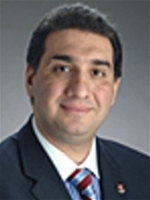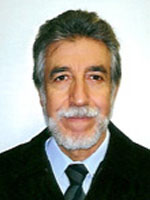 | Dr. Moghimi earned his Bachelor degree in Biochemistry with Honors from the University of Manchester (UK), and his Doctorate in Biochemistry/Immunobiology from Charing Cross and Westminster Medical School, Imperial College, London. Following postdoctoral training and a University Fellowship at the School of Pharmaceutical Sciences at Nottingham University (UK), he moved to the University of Brighton as a senior lecturer in Biopharmacy and Molecular Therapy. In 2008, he accepted the chair of Nanomedicine at the University of Copenhagen (Denmark), where he currently heads the Nanomedicine Research Group at the School of Pharmacy, Faculty of Health and Medical Sciences. In 2009, he founded the Centre for Pharmaceutical Nanotechnology and Nanotoxicology (CPNN) at the NanoScience Centre of Copenhagen University through a multi-million dollar award by the Strategic Research Council of Denmark, where he acts in the capacity of center director. Read more about  |
 | Dr. Farassati is translational cancer scientist at Kansas University Medical Center (KUMC) and the director of the Molecular Medicine Laboratory. With enhanced training in cell signaling and oncolytic virus therapy, Dr. Farassati's lab developed the SS1 virus as the first prototype of an oncolytic virus with capabilities in targeting overactivation of Ras pathway (Pan et al. PLoS ONE, 2009). A focus of Dr. Farassati's research is to develop viruses which can specifically target and destroy cancer stem cells. Such viruses can induce a robust tumor regression due to destruction of the repopulation capabilities of the tumors. His lab also works on signaling characterization of cancer stem cells in human malignancies with the goal of targeting them. Dr.Farassati's research has frequently attracted national/international attention as could be confirmed by a Google search under his name. He was recently named as the chair of the "Neuro-oncology" session of WCNT-2010 and the "infectious agents and cancer" of the World Cancer Congress, 2011. Read more about  |
 | Dr. Mohammad Rafi received his PhD in Animal Biology from the University of Montpellier, France, in 1970. He taught Cell and Molecular Biology for over 17 years at the School of Science, Tabriz University, Iran, where he also served as Chair of the Department of Animal Biology. He is currently a Professor of Neurology in the Department of Neurology with a joint appointment in the Department of Neurosciences at Thomas Jefferson University in Philadelphia, USA. Though he has worked on several lysosomal storage diseases, his main research interest is gene therapy of neurodegenerative disorders using animal models of globoid cell leukodystrophy (Krabbe disease). With successful AAVrh10-mediated treatment of murine and canine models, his research is moving towards the treatment trials of human patients. Read more about  |